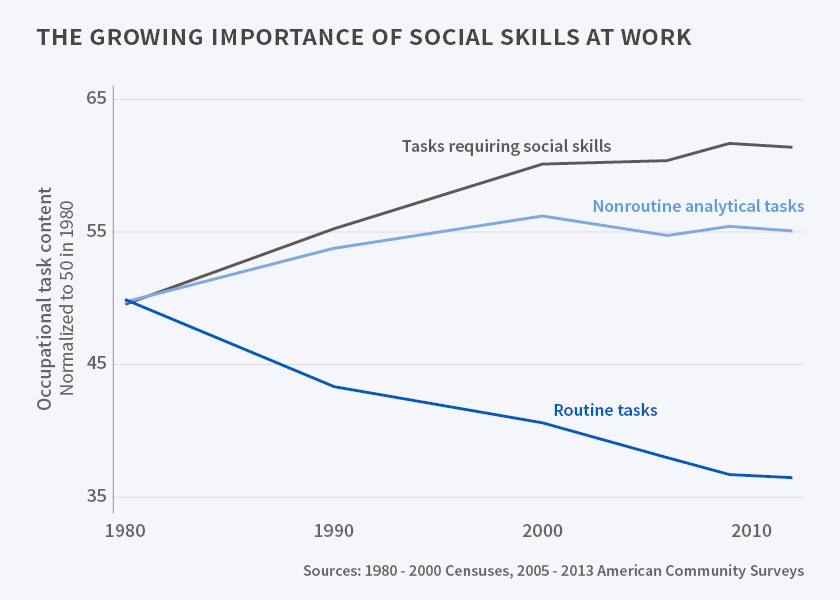“We scarcely experience the world apart from our emotional response to it.” – Steven Stosny, Ph.D.
Do emotions really have a place in presentations?
Does your ability to be a good public speaker have anything to do with how emotionally intelligent you are?
Shouldn’t we just get back to talking about the serious stuff?
There’s still a bit of social stigma that rears its ugly head when we start talking about emotions. Executive Coach Ed Batista says, “We’re trained to regard emotions as irrational impulses that are likely to lead us astray. When we describe someone as ‘emotional,’ it’s usually a criticism that suggests that they lack good judgment.”
But emotions are an important part of how we experience and process the world. So emotions factor into every step of the presentation process in which humans are present. And that’s every single step along the way. Let’s look at the 5 categories of emotional intelligence developed by Daniel Goleman, so that we better understand what it means to be an emotionally intelligent communicator.
1. Self-awareness
Self-awareness is something people talk a lot about these days. Personality tests and strengths assessments tend to pop up everywhere. And with good reason. But these types of tests don’t just belong in the field of psychology. Being aware of who you are and how you appear to others helps to make you a better communicator. In fact, we think self-awareness is such a powerful component of effective communication, that we developed a tool to help you measure your presentation persona. You can take our Badge assessment here.
2. Self-regulation
Self-regulation involves how much or how little control you have over your emotions. This is where some of our negative thinking toward emotions comes in. It’s a matter of semantics. The word “control” is often associated with emotions. As in “try to control your emotions” or “uncontrollable laughter” or “I don’t want to lose control and cry.” If we see emotions as something that needs to be tempered or hidden, it’s hard to see them as the helpful, positive, natural responses they are.
But we all know that our emotions might be disruptive in a certain contexts. Like during a presentation. That doesn’t mean you shouldn’t ever cry or laugh during a presentation, it just means you need to regulate. Here’s the question I use to self-regulate: To what extent do I need to regulate my emotions right now given the context? However, answering that question is only part of the work. You have to then learn to match your emotional behaviors to your self-regulation. Then, you have to come back and process anything you regulated later. People with higher levels of emotional intelligence are curious about their emotions. They regulate and honor them instead of ignoring them.
3. Motivation
PsychCentral says that motivation is made up of achievement drive, commitment, initiative, and optimism. If you are in tune with your emotions, you can understand the dips and surges in your motivational drive. For example, if your energy towards an upcoming presentation wanes, you can explore and name the feelings that might be associated with your decreased motivation. Perhaps you feel underqualified, or you are worried about the tight timeline, or you are frustrated by your team’s procrastination. When you begin to identify these emotions, you can work to address them specifically. This allows you to move forward with renewed energy and optimism for the presentation.
4. Empathy
The ability to be sensitive to others’ feelings and thoughts is a critical part of emotional intelligence. As it turns out, it’s a critical part of public speaking, too. We call it audience analysis. It means you should develop and deliver your messages with your specific audience in mind. And the more you think about them and make an effort to understand them, the better you can communicate with them. A speaker who is more empathetic remembers that she is only one part of the communication conversation.
5. Social Skills
Interpersonal skills, people skills, or social skills are all ways of saying that the emotionally intelligent person interacts better with others than someone who lacks emotional intelligence. Research shows that social skills continue to be an important commodity on the job market. David J. Deming’s research shoes that “nearly all job growth since 1980 has been in occupations that are relatively social-skill intensive.”

But social skills aren’t just important in the workplace or on the presentation stage. Ed Batista says, “it’s clear to me that the ability to access, interpret, and act upon our emotions is essential if we are to make good choices that will allow us to be more fulfilled and effective.” It’s really this simple. When you become a more emotionally intelligent person, you become a better communicator and presenter.
Check out this resource for more information about how emotional intelligence is measured, along with a list of 6 self-assessments you can take.
And for more information about how to master the art of public speaking, get in touch with a presentation coach at Ethos3 now.